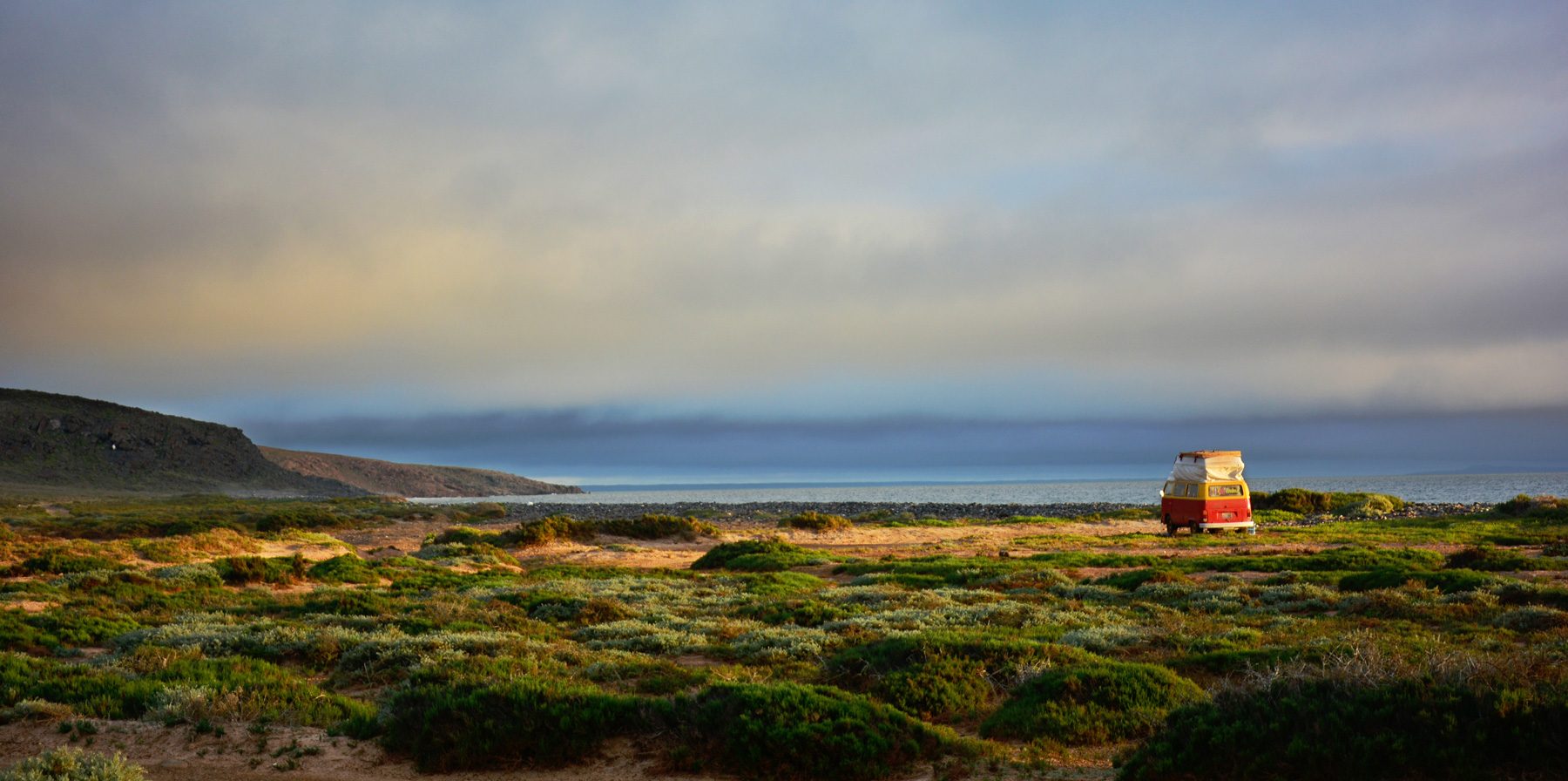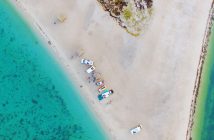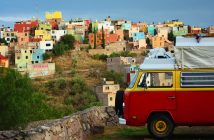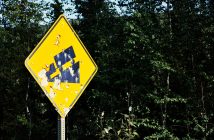On our third night camping in Mexico, the words of the many people who had told us “Mexico is dangerous” rang in our heads. A story about camping, stereotypes, and striving to understand.
Written on March 24th, four days after we arrived in Mexico.
How do you force yourself to overcome stereotypes? Despite the fact that I think I am a pretty open person and detest prejudice, I cannot always bring myself to think outside of it. It is hard, sometimes, to overcome fears that are brought on by prejudice, even when you are aware of the fact that this is happening. It is hard, sometimes, to overcome the things that you do not like about yourself.
Stereotypes and prejudices
Everybody has their stereotypes. Even if you do not think you do, they are there, hidden away. It is not because you are a bad person. Stereotypes are not necessarily a bad thing. They are humans’ way of categorizing things. Humans like to put things into categories, it helps us think better. Our minds like to sort things out, so we can understand them in more simple, generalized ways. Americans are very friendly on the surface. Germans drink a lot of beer. But the important part of all of this is the word generalization. Not all Americans are friendly, even if most of them seem to be. Not every German person likes beer, and almost no German person that I know has been to Oktoberfest.
For the most part, these generalizations are harmless. However, stereotypes get dangerous when they turn into prejudices, or negative stereotypes. These are the things that make us fearful of other people, and forget that stereotypes are generalizations that do not apply to everybody. Prejudice makes us act on things that we are scared of. Prejudice is what makes cops in the United States shoot innocent people of color more often than white people. It is what makes Americans reference Nazis a lot when talking about Germans. It’s what makes many people believe that Mexico and Mexicans are dangerous.

Our first night camping in Ensenada, Mexico. We paid to camp in a parking lot, where we could enjoy our first Mexican beer and watch the surfers.
It is our third day camping in Mexico. So far, we’ve been pretty vigilant about where we stay. The very first night, we paid to camp in a parking lot next to the beach in Ensenada, probably the 8th or 9th time we’ve paid for camping in over nine months. We figured we could be pretty sure it would be safe, and it was a spot that both the Lonely Planet and the travel app iOverlander mentioned. It was nice. The second night we headed south, and stayed near a lonely fishing village on the side of a cliff on a tiny peninsula, with almost 360-degree-views of the ocean. It was beautiful. It was also recommended on iOverlander, and it was free. Both nights we were alone. We were told not to camp alone in Mexico, but so far, we had not met other travelers to caravan with. So alone it is. But in a tended parking lot and next to a village, we didn’t feel
We were told not to camp alone in Mexico, but so far, we had not met other travelers to caravan with. So alone it is. But in a tended parking lot and next to a village, we didn’t feel too alone.
A boondocker’s paradise
We traveled down Baja, watching the landscape change a half dozen times a day. There are so few people here, we haven’t felt this remote since Alaska or the Cassiar Highway in Canada. There is almost no cell service. This is a boondocker’s paradise. There are small dirt roads going off of the highway everywhere, and sometimes it’s over an hour to the next town. You can camp almost anywhere for free. If you are self-contained, you could live forever on Baja and never bother anybody. This is what we would consider camping heaven so far on our trip.
Still, we are aware that we shouldn’t camp alone, so we stick to iOverlander spots. On night number three, we decide to head for a spot down a dirt road to the ocean, where many people have camped before us. It is beautiful and lonely, there is not a person in sight for miles and some bad weather rolling in. We park and do our evening routines, hang out and talk about when we need to be in La Paz to pick up a friend from the airport. We are talking, reading the guidebook.
Hello, amigos
We suddenly look up with a lurching shock that there is somebody standing about four meters away from our sliding door. He is peeking inside at us and waving. We set our stuff aside and go outside to greet him. “Como te llamas?” – What’s your name? – we ask him. “Luis”, he answers, and he shows us the mussels he had been collecting.
“Diving” he says, and we peek into the bag. The mussels are still in their shells and look quite phallus-like. We talk in a strange mix of English and
Spanish, and I don’t understand much of what he is explaining. About three minutes into the mismatched conversation, he points to his friend, Guillermo, standing on the other side of the Bus. We, completely unaware and focused on Luis, have not noticed Guillermo until now, and are taken by surprise. Guillermo waves. Luis says they came from the military checkpoint down the road, and are headed up the beach for some
mota. “Do you want
mota?” he asks us. No, we’re good without weed, thanks. We say goodbye. They continue to walk down the beach. We get back in our Bus.
That uneasy, creeping feeling
We feel very stupid. Primarily for being caught so incredibly unaware. How did we not notice Luis, so close to our Bus? And especially, how did we not notice Guillermo for a whole three minutes or so? We need to be more vigilant.
And where could they possibly be walking to? There is nothing around here, anywhere. They will have to walk for another hour or two, and in really shitty weather, and then come back. Why don’t they just drive? Why are they taking the mussels with them, why carry them all this way? Maybe they will trade them for the weed. And coming from the military checkpoint (military checkpoints are common and routine, especially on Baja. You pull up, tell them where you’re going and where you’re coming from, and go on your way. We’ve passed three by this point, and they’ve never done more than that. They are, so we’ve heard, looking for weapons and drugs, and are unlikely to stop tourists for very long)? Are they from the military, and if so, aren’t they supposed to be trying to suppress the movement of marijuana? Whatever. We don’t get it. This is weird.
We were told to trust our intuition and common sense. But how do you know if your common sense knows what’s going on? Especially in a place where your common sense has had no time to adapt itself. And yet, my intuition says that despite the fact that I don’t understand the situation, everything seems fine. They were nice. And my common sense tells me that people will go to lengths for some weed, even walking a few miles through the rain. But still, I can’t let it go that I just can’t make sense of it.

Our campspot on our second day in Mexico, with incredible ocean views. It was free and on the outskirts of a quiet fishing village. The article’s cover picture is the actual spot where this story takes place.
But what if…
It makes me uncomfortable that people now know we are here. I don’t think anyone will drive down this dirt road just to rob some tourists that might or might not be at the end of it. But would they, if someone knew what to look for? What if the guys on their way back decide to pester us? Or come back with a car, or a group of people? We debate whether we should go somewhere else. But it is dark, and next to Don’t camp alone, we also know Don’t drive at night. And where would we go? No idea. And this place is beautiful. We remain vigilant, and decide to stay, but the beauty of the spot and the evening are pretty ruined. We decide to be prudent, and hide our laptops and credit cards. Leave the keys in the ignition, put our bear spray within reach. You never know.
We make dinner, get into bed. We continue to look out the windows, we don’t want to be caught off guard again. Mostly I continue to look out the windows, into the misty raincloud that has encircled this beach. Eventually, we see two lights in the distance. They blink and move, like flashlights, not like the headlights of a car. The guys must be walking back. I’m not sure if it is better to have the lights in our Bus on or off, so I opt for the candle and watch as they come closer. It takes them a very long time. As they pass by our Bus, us waiting inside, Luis calls out “Hey amigos, welcome to Mexico!” and continue on their way. Wherever they are going.
After they were gone, I felt much better. I felt like the story had come to a close, like we knew the ending, and I relaxed. I knew that my fears were silly, based on prejudices and wild stories and the dozens of warnings that everybody offers about traveling in Mexico. I slept pretty well, and dreamed of going to Texas.
Rampant prejudice is hard to ignore
It is hard to ignore what everybody else seems to think about Mexico. It is hard to make myself understand that although these warnings have some basis – a basis that should be respected – they mostly have the effect of scaring me, of making me act on fears instead of facts. Of letting my imagination run away with me. I know that the warnings that people give us are based on generalizations that have turned into prejudices.
Yet, it is hard to ignore these warnings because
almost everybody has repeated them. Before we
got to Mexico, it was much,
much more common for someone to say something about how dangerous the country was, how we should watch out, how we needed to be careful, than for them just think Mexico is awesome. It would almost surprise me when the person we were having a conversation with did
not mention this. One person, upon discussion of Mexico, asked if we had a
gun (no, we don’t).

Baja: a lot of open road and empty space
I am not proud of my feelings in this situation. I do not like being stereotyped as an American. And I do not want to fall victim to my own prejudices towards other people. I believe I can be better than that.
And I mostly, truly believe that people are generally good. Of course there are assholes out there, but most people are just doing their thing, living life, being people. Most people don’t want to harm others. Even in Mexico. Every person we’ve met so far, including Luis and Guillermo, has been very friendly and helpful. There are no evil plans lurking around the corner, just some guys looking to score some green. If bad shit happens, it is probably just because we were unlucky, or because we were not being vigilant.
Striving to understand
Prejudice grows from ignorance. Fear of the unknown. Failure to understand. Not knowing if it is really okay to camp alone, having not yet adjusted to our unfamiliar surroundings. Not knowing many Mexicans who can give us
their opinion about how safe regions of their country are. Not
speaking the language enough to understand the finer arts of Spanish articulation, of subtle meanings, the things that let my subconsciousness know in English or German if I can trust a person. Not being able to interpret words, but more importantly not being able to interpret mimic and tone. Ignorance sparks fear. But the antidote will always be
striving to understand. This is how we will overcome negative stereotypes.
It’s true, we probably shouldn’t be camping alone in a country we don’t know very well yet. But practicality is also important, and that beach was beautiful. I’m glad we didn’t let our fears get the better of us, and stayed. The view in the morning, when the sky was clear and sunny, was worth it.









5 Comments
Dearest One–Well articulated. Keep writing. You have a gift. And I just noticed this but you have my toes!!!!!!!
Very well said, Emma. You are so right. Stereotypes drive us to act in fear not on facts. Enjoy and keep writing!
Thank you, Shameem! I’m glad to hear your thoughts on this topic!!
I still believe that good people also attract good people. I would not worry a second about safety. As you said, people are just being people and most of their time curious and helpful or just indifferent. And as a worst case to get robbed would also not the end of the world. Happy Easter!!!
Danke Maria! And yes, that’s exactly the mindset we have – getting robbed is never that bad as long as everybody is okay! You are exactly right, most people are just nice people, which is what situations like this teach us. Happy Easter to you too!